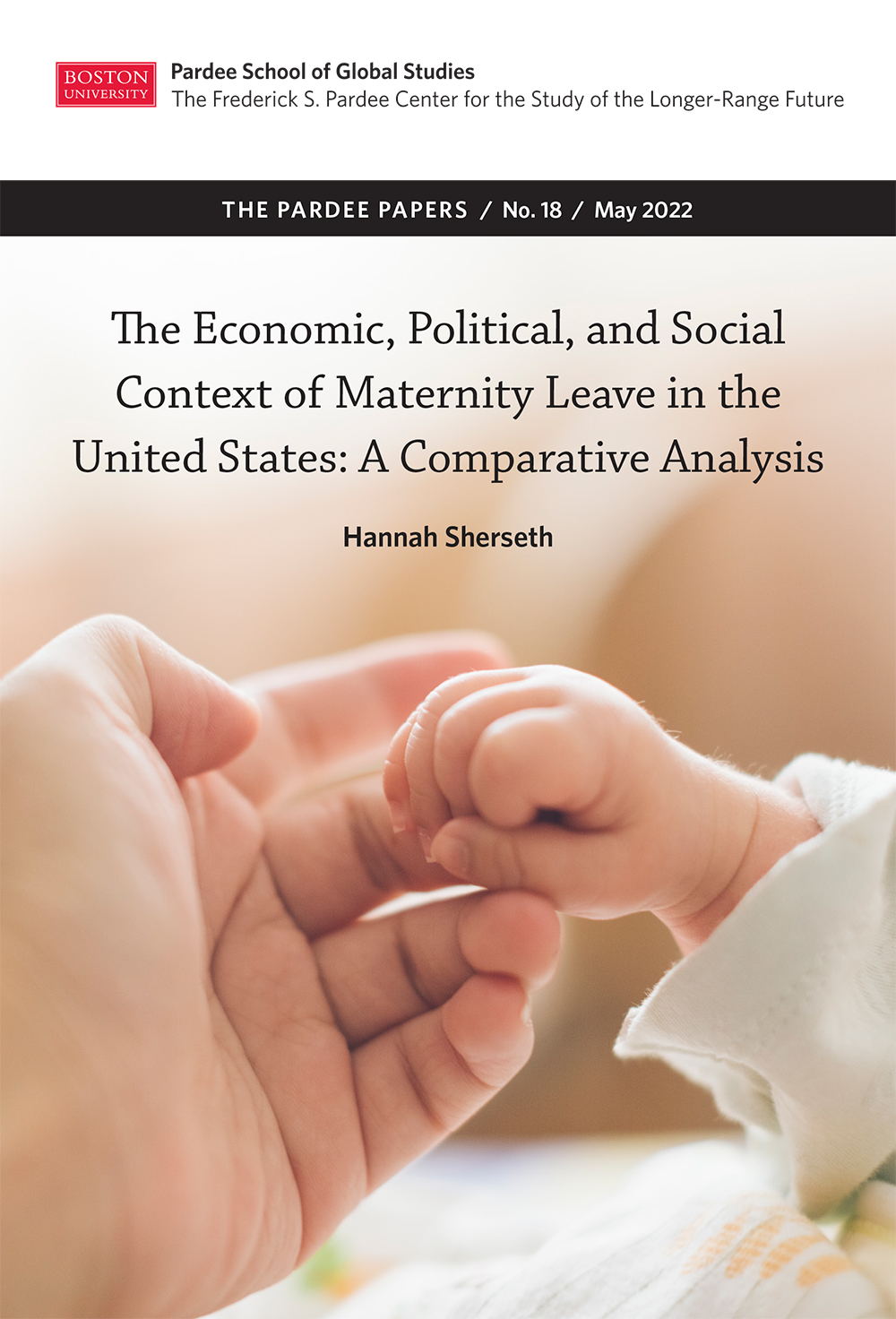The Pardee Papers, No. 18, May 2022
The Economic, Political, and Social Context of Maternity Leave in the United States: A Comparative Analysis
 By Hannah Sherseth
By Hannah Sherseth
May 2022 (49 Pages)
Download PDF
As American female labor force participation and educational attainment has grown over the past seven decades, laws supporting women with children have not kept pace with changes in workforce demographics, particularly in the form of paid maternity leave. Relative to its economic counterparts, the United States has shown a significant delay in addressing the increasing numbers of women in the workforce and adapting paid leave laws accordingly. In this Pardee Paper, Hannah Sherseth analyzes the current state of maternity leave in the United States and contends that the delay and continued limitation of maternity leave policies in the United States can be tied directly to the resurgence of an ideology based around the traditional family unit. She also presents a comparative analysis between the United States and similar OECD countries to determine if correlations exist between current paid maternity leave laws and standard social and economic gender equality indicators, particularly female labor force participation rates, gender wage and employment gaps, and inequities in time spent in unpaid labor.
Hannah Sherseth is a recent graduate of the Masters of Economics program at Boston University. Hannah earned her BA in Economics and Math from Emory University and spent six years in the consulting industry. She will be pursuing a PhD in Fall 2022, focusing on political economy and economic policy. She was a 2020 Graduate Summer Fellow at the Frederick S. Pardee Center for the Study of the Longer-Range Future.